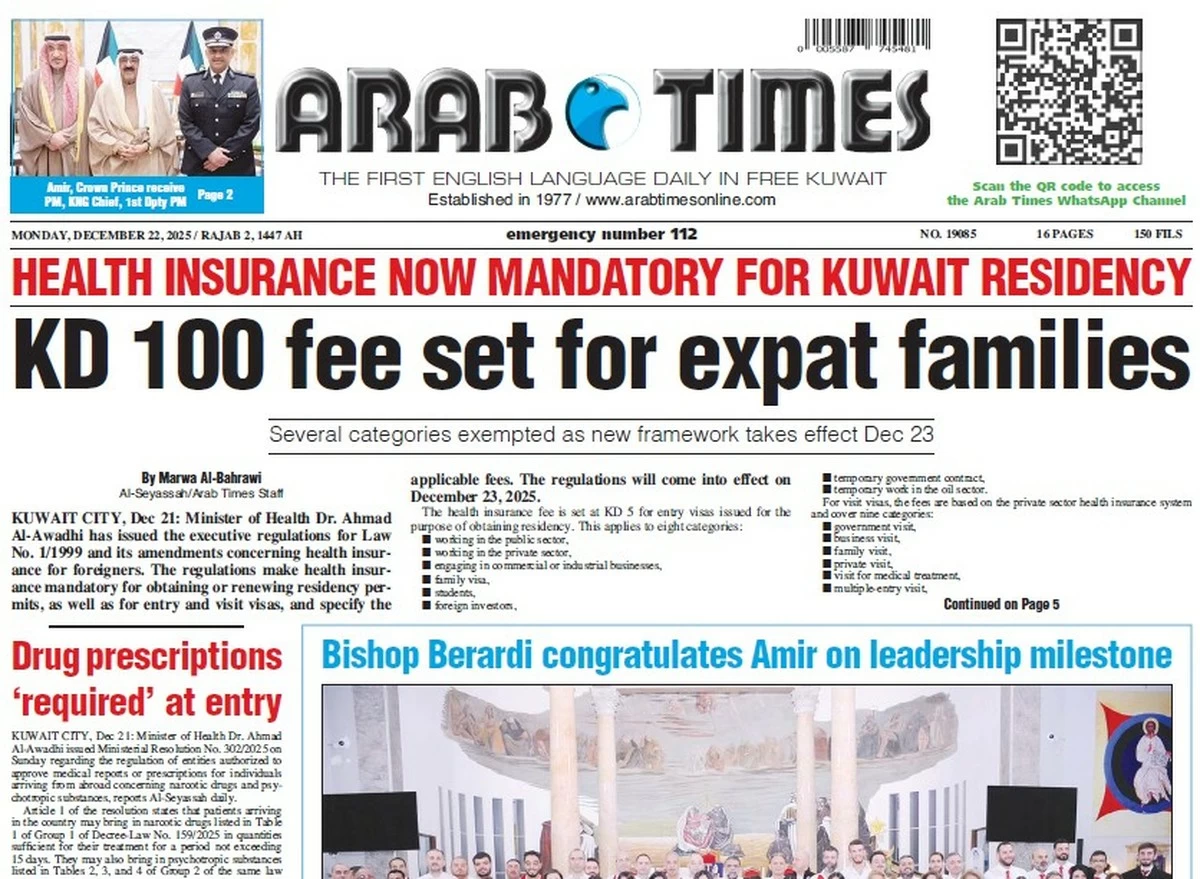10/09/2023
10/09/2023
Rescuers in race to find survivors
Toll climbs over 2,000 … casualty count expected to rise

AMIZMIZ, Morocco, Sept 10, (Agencies): An aftershock rattled Moroccans on Sunday as they prayed for victims of the nation’s strongest earthquake in more than a century and toiled to rescue survivors while soldiers and workers brought water and supplies to desperate mountain villages in ruins. The disaster killed more than 2,000 people - a number that is expected to rise. The United Nations estimated that 300,000 people were affected by Friday night’s magnitude 6.8 quake and some Moroccans complained on social networks that the government wasn’t allowing more help from outside. International aid crews were prepared to deploy, but waited for the Morocco government to request their assistance. “We know there is a great urgency to save people and dig under the remains of buildings,” said Arnaud Fraisse, founder of Rescuers Without Borders, who had a team stuck in Paris waiting for the green light. “There are people dying under the rubble, and we cannot do anything to save them.” Help was slow to arrive in Amizmiz, where a whole chunk of the town of orange and red sandstone brick homes carved into a mountainside appeared to be missing. “It’s a catastrophe,’’ said villager Salah Ancheu, 28. “We don’t know what the future is. The aid remains insufficient.”
Residents swept all the rubble off the main unpaved road leading to town and aid crews began arriving but pleaded for more help. “There aren’t ambulances, there aren’t police, at least for right now,” Ancheu said. Those left homeless - or fearing more aftershocks - slept outside Saturday, in the streets of the ancient city of Marrakech or under makeshift canopies in Atlas Mountain towns like Moulay Brahim, among the hardest-hit. The worst destruction was in small, rural communities that are hard for rescuers to reach because the roads that snake up the mountainous terrain were covered by fallen rocks. Those areas were shaken anew Sunday by a magnitude 3.9 aftershock, according to the U.S. Geological Survey. It wasn’t immediately clear if it caused more damage or casualties, but it was likely strong enough to rattle nerves in areas where damage has left buildings unstable and residents feared aftershocks.
Terror
Friday’s earthquake toppled buildings not strong enough to withstand such a mighty temblor, trapping people in the rubble and sending others fleeing in terror. A total of 2,012 people were confirmed dead and at least 2,059 more people were injured - 1,404 of them critically, the Interior Ministry reported Saturday. “We felt a huge shake like it was doomsday,” Moulay Brahim resident Ayoub Toudite said. “Ten seconds and everything was gone.” Flags were lowered across Morocco, as King Mohammed VI ordered three days of national mourning starting Sunday. The army mobilized specialized search and rescue teams, and the king ordered water, food rations and shelters to be provided to those who lost their homes. He also called for mosques to hold prayers Sunday for the victims, many of whom were buried Saturday amid the frenzy of rescue work nearby. Aid offers have poured in from around the world and the U.N. said it had a team in Morocco coordinating how international partners can provide support. About 100 teams made up of a total of 3,500 rescuers are registered with a U.N. platform and ready to deploy in Morocco when asked, Rescuers Without Borders said.
Assistance
In Kuwait, Kuwaiti charities have already scrambled into action to relieve victims of the earthquake that ravaged large swaths of southern Morocco, heeding His Highness the Amir guidelines to secure assistance for them rapidly. A Kuwait-based charity on Sunday started collaborating with eight local bodies to provide urgent aid for the people affected by Morocco’s deadliest earthquake in more than six decades, an initiative backed by Kuwait’s political leaders. The comprehensive aid package, consisting of essential food supplies and urgent healthcare assistance, which aims to address the dearth of healthcare supplies in Moroccan hospitals, is symbolic of the camaraderie Kuwait shares with Morocco, Kuwait Relief Society chief Dr. Ibrahim Al- Saleh said amid talks between the parties involved in this project. The aid package seeks to address the mounting humanitarian needs of the Moroccan people in the aftermath of this catastrophic tragedy, according to Dr. Jaber Al-Wanda, the deputy chief of Kuwait’s Al-Najat charity, one of the participants in this noble endeavor. Kuwait is accustomed to lending a helping hand to the victims of conflicts and crises alike, which also includes natural disasters, he underlined, pointing out that Kuwait was among the “first” to respond to the calamity that unfolded in the North African nation. Citing the “diligent efforts” that will go into this endeavor, Kuwait’s “Al-Rahma International Society” representative Waleed Al-Suwailem said the initiative aims to provide urgent relief to the people who have been displaced by the devastating tremor.


